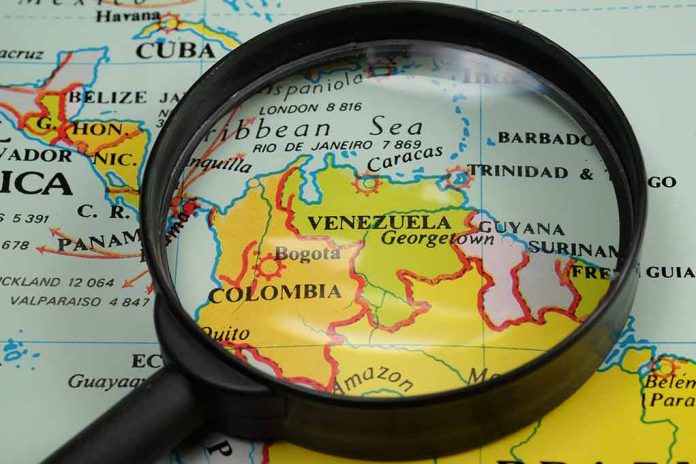
The U.S. and Venezuela resume repatriation flights, facing complex challenges amid gang threats and diplomatic uncertainty.
Key Takeaways
- Dozens of deported illegal migrants, including suspected members of the Tren de Aragua gang, were returned to Venezuela from the U.S.
- Nearly 200 deportees arrived at an airport near Caracas, Venezuela’s capital, on Monday morning.
- A Homeland Security source confirmed that some deportees were members of the Tren de Aragua gang.
- The repatriation flights resumed after Venezuela and the U.S. reached an agreement over the weekend.
- Venezuelan President Nicolás Maduro had previously suspended these flights on March 8 due to the U.S. Treasury Department’s actions against Chevron.
Diplomatic Progress and Security Concerns
Diplomatic progress between the United States and Venezuela marks a significant turn as they agreed to resume repatriation flights. This decision led to the return of around 200 Venezuelan migrants to Caracas early Monday. However, the presence of suspected Tren de Aragua gang members among the returnees raises security concerns in the region. The gang’s criminal reputation poses potential threats to Venezuela’s internal stability, complicating bilateral relations.
Symbols of resistance were evident when some deportees raised their hands in apparent defiance as they disembarked. Others, showing relief, made the sign of the cross upon touching down in their homeland. Homeland Security confirmed suspicions that among the deported were notorious gang members known for organized crime activities. This revelation challenges enforcement strategies aimed at ensuring community safety in Venezuela.
Resuming Flights amid Diplomatic Delicacy
The flights resumed following a newfound accord during the weekend between both nations. President Nicolás Maduro had previously halted these flights on March 8, attributing the suspension to the U.S. Treasury Department’s punitive actions against Chevron. The diplomatic breakthrough underscores the difficult balance required to protect human rights while dealing with geopolitical and criminal complexities.
Jorge Rodríguez, a key negotiator for Maduro, has steadfastly maintained that “migrating is not a crime and we will not rest until we achieve the return of all those who require it.” The commitment from Caracas reflects their stance on reintegrating citizens while emphasizing the humanitarian aspect in their diplomatic engagements.
Balancing Diplomacy and Domestic Peace
Venezuela’s decision to restart these flights is a bid to ensure the safe return of nationals while navigating the volatile American diplomatic environment. Amidst this, it is crucial to sustain internal security while monitoring gang-associated risks that could destabilize national cohesion and public safety. The administration’s response will be critical in maintaining peace and adherence to international protocols.
Authorities must remain vigilant as they prepare for potential reverberations from returning deportees, especially those associated with Tren de Aragua. The challenge lies in enforcement causing unintended societal disruptions as these individuals reintegrate into Venezuelan society.





